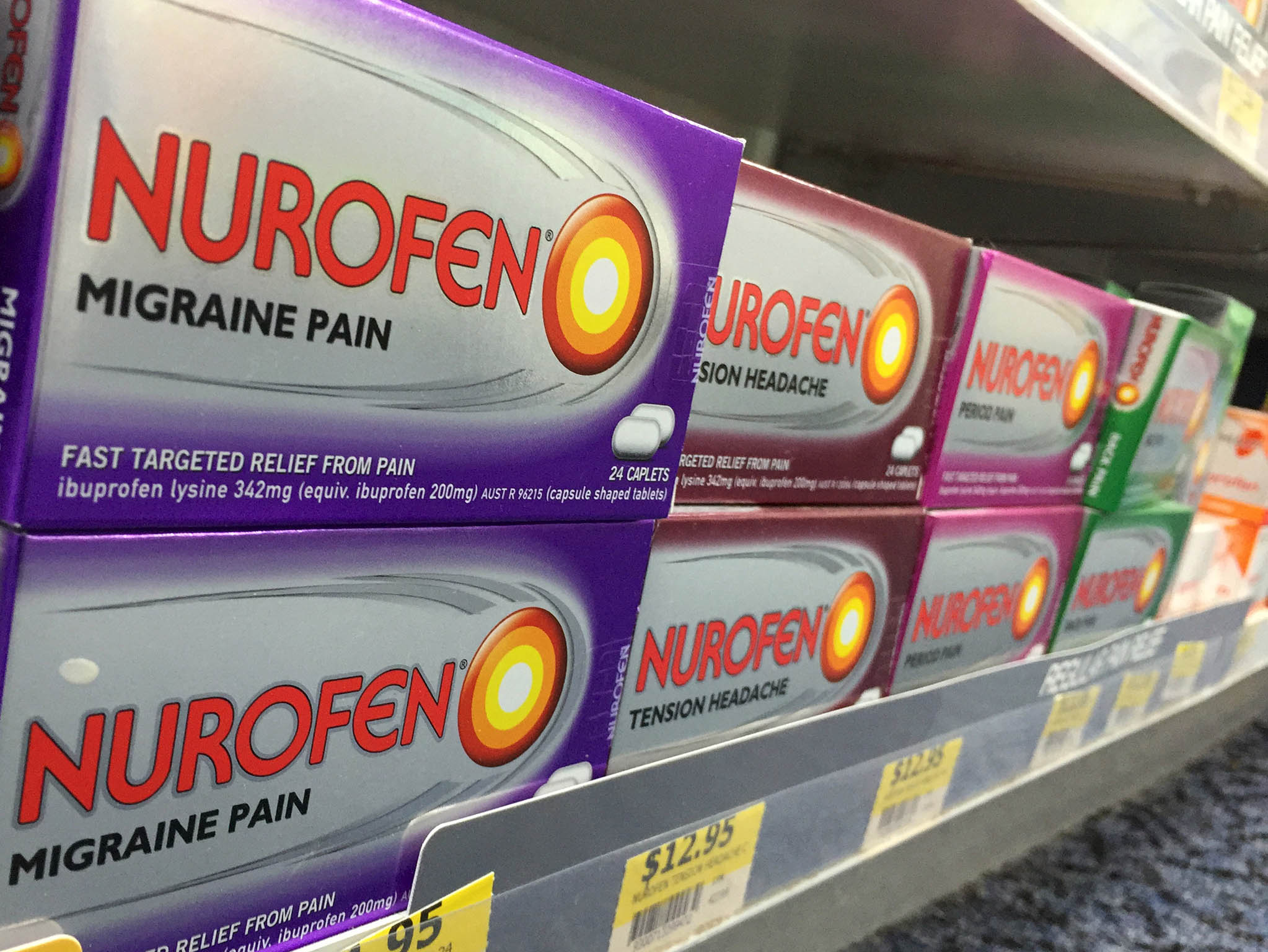Nurofen owner Reckitt Benckiser ordered to stop selling 'misleading' target specific painkillers
Consumers were being tricked into thinking four products were designed to treat a specific type of pain

Your support helps us to tell the story
From reproductive rights to climate change to Big Tech, The Independent is on the ground when the story is developing. Whether it's investigating the financials of Elon Musk's pro-Trump PAC or producing our latest documentary, 'The A Word', which shines a light on the American women fighting for reproductive rights, we know how important it is to parse out the facts from the messaging.
At such a critical moment in US history, we need reporters on the ground. Your donation allows us to keep sending journalists to speak to both sides of the story.
The Independent is trusted by Americans across the entire political spectrum. And unlike many other quality news outlets, we choose not to lock Americans out of our reporting and analysis with paywalls. We believe quality journalism should be available to everyone, paid for by those who can afford it.
Your support makes all the difference.An Australian court has ordered Nurofen's UK owner to stop selling several versions of the popular painkiller that were identical to its standard ibuprofen pills, but nearly twice as expensive.
The Federal Court ruled that British consumer goods company Reckitt Benckiser deceived Australians by selling Nurofen painkillers that were marketed to relieve specific ailments, such as back pain, but all of the products contained an identical amount of the same active ingredient, ibuprofen lysine.
Australia's consumer watchdog launched the court action in March, arguing that consumers were being tricked into thinking that the four products - Nurofen Back Pain, Nurofen Period Pain, Nurofen Migraine Pain and Nurofen Tension Headache - were designed to treat a specific type of pain.
However, each of the four painkillers were found to be exactly the same.
"None of the four products is any more or less effective than the others in treating any of the particular symptoms," Justice James Edelman wrote in his judgment.
Judge Edelman gave Reckitt Benckiser three months to remove the products from Australian stores. The company markets a variety of health and household goods in Australia.
Reckitt Benckiser said it would comply with the order and replace the products with new packaging that clearly states the drugs are equally effective at treating other forms of pain.
A Nurofen spokesperson stressed that the case related to Australia only, and all Nurofen products remain available elsewhere with no changes to packaging.
"The Nurofen specific-pain range was launched with an intention to help consumers navigate their pain relief options, particularly within the grocery environment where there is no health care professional to assist decision making," Nurofen spokeswoman Montse Pena said in a statement.
"Nurofen did not set out to mislead consumers,” she added.
The Australian Competition and Consumer Commission (ACCC), which started the court action, said the price of Nurofen's specific pain products was nearly double that of Nurofen's standard ibuprofen painkiller and other general pain relief products sold by competitors.
"Truth in advertising and consumer issues in the health and medical sectors are priority areas for the ACCC, to ensure that consumers are given accurate information when making their purchasing decisions," ACCC chairman Rod Sims said in a statement. "Any representations which are difficult for a consumer to test will face greater scrutiny from the ACCC."
A separate court hearing will be held to determine if the company may face fines.
Reuters
Subscribe to Independent Premium to bookmark this article
Want to bookmark your favourite articles and stories to read or reference later? Start your Independent Premium subscription today.
Join our commenting forum
Join thought-provoking conversations, follow other Independent readers and see their replies
Comments